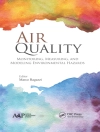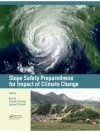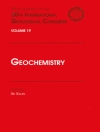Uncertainty is a fundamental characteristic of weather, seasonal climate, and hydrological prediction, and no forecast is complete without a description of its uncertainty. Effective communication of uncertainty helps people better understand the likelihood of a particular event and improves their ability to make decisions based on the forecast. Nonetheless, for decades, users of these forecasts have been conditioned to receive incomplete information about uncertainty. They have become used to single-valued (deterministic) forecasts (e.g., "the high temperature will be 70 degrees Farenheit 9 days from now") and applied their own experience in determining how much confidence to place in the forecast. Most forecast products from the public and private sectors, including those from the National Oceanographic and Atmospheric Administration’s National Weather Service, continue this deterministic legacy. Fortunately, the National Weather Service and others in the prediction community have recognized the need to view uncertainty as a fundamental part of forecasts. By partnering with other segments of the community to understand user needs, generate relevant and rich informational products, and utilize effective communication vehicles, the National Weather Service can take a leading role in the transition to widespread, effective incorporation of uncertainty information into predictions. "Completing the Forecast" makes recommendations to the National Weather Service and the broader prediction community on how to make this transition.
Board on Atmospheric Sciences and Climate & Committee on Estimating and Communicating Uncertainty in Weather and Climate Forecasts
Completing the Forecast [PDF ebook]
Characterizing and Communicating Uncertainty for Better Decisions Using Weather and Climate Forecasts
Completing the Forecast [PDF ebook]
Characterizing and Communicating Uncertainty for Better Decisions Using Weather and Climate Forecasts
Kup ten ebook, a 1 kolejny otrzymasz GRATIS!
Język Angielski ● Format PDF ● Strony 124 ● ISBN 9780309662611 ● Wydawca National Academies Press ● Opublikowany 2006 ● Do pobrania 3 czasy ● Waluta EUR ● ID 7148040 ● Ochrona przed kopiowaniem Adobe DRM
Wymaga czytnika ebooków obsługującego DRM












